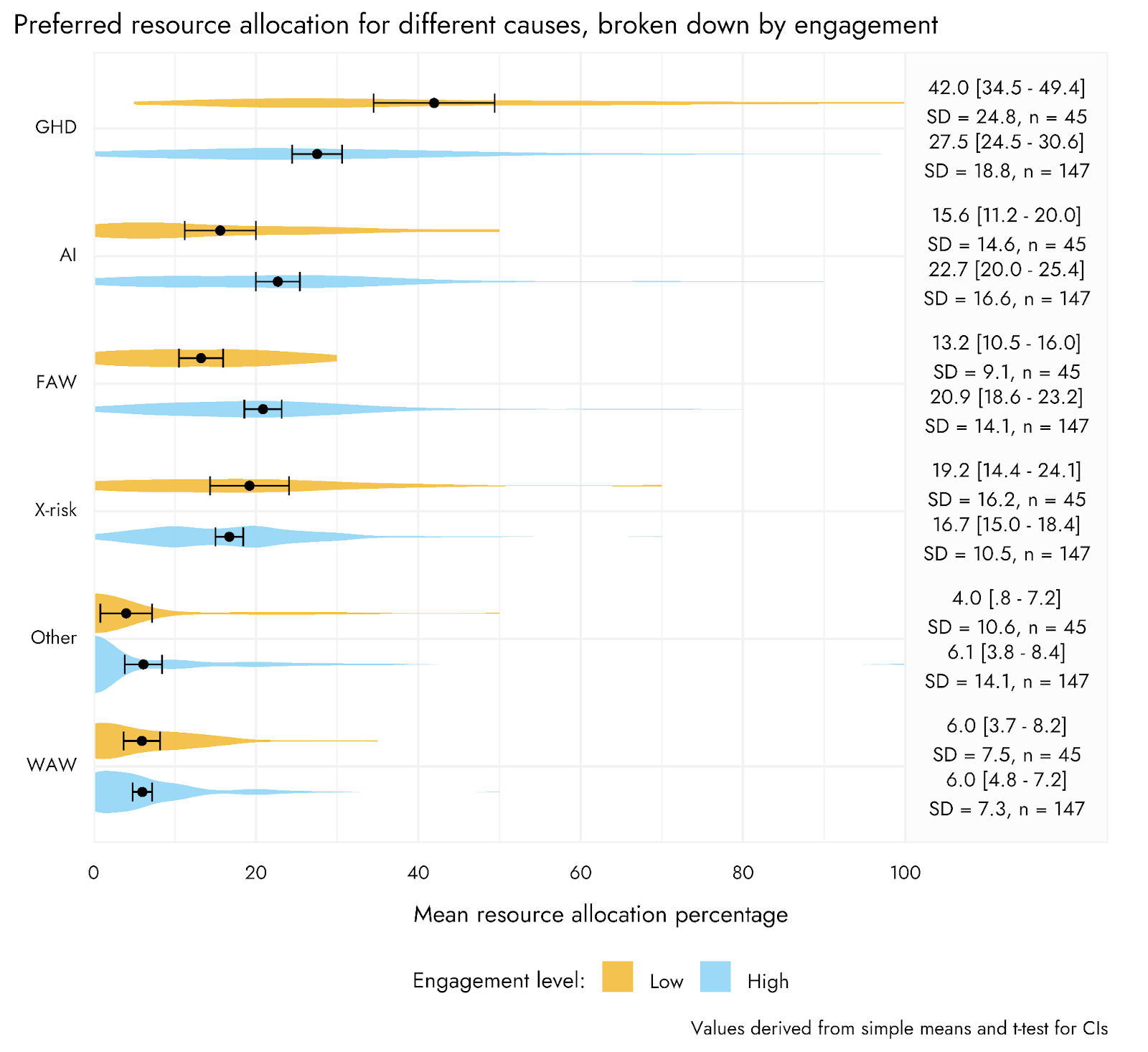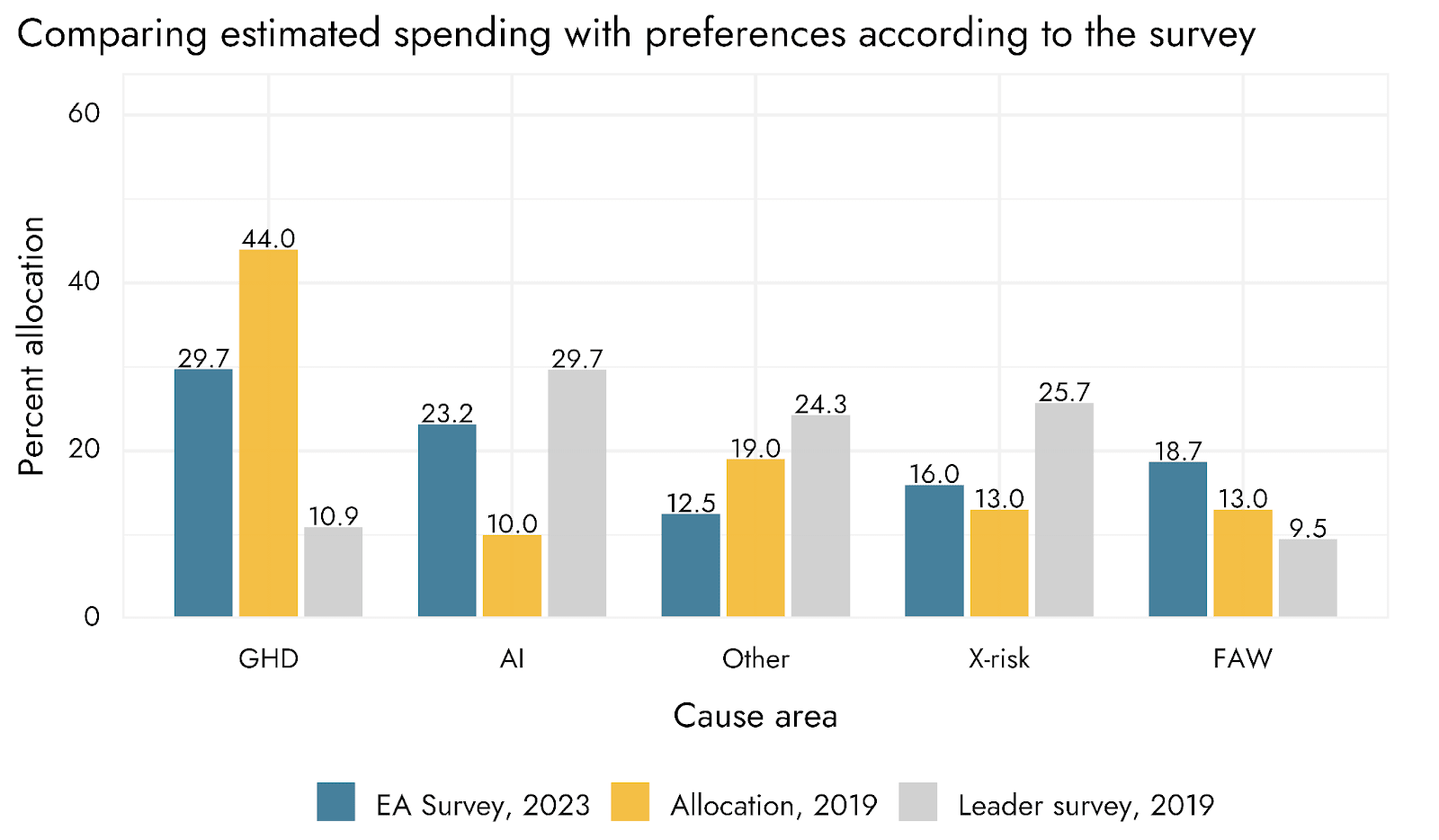When you comment on your vote on the debate week banner, your comment will appear on this thread. Use this thread to respond to other people's arguments, and discuss the debate topic.
You should also feel free to leave top-level[1] comments here even if you haven't voted. As a reminder, the statement is "It would be better to spend an extra $100m on animal welfare than on global health".
If you’re browsing this thread- consider sorting by “New” and interacting with posts that haven’t been voted or commented on yet. There are a lot of comments!
Also- perhaps don’t vote karma below zero for low effort submissions, we don’t want to discourage low effort takes on the banner.
- ^
The first comment in a thread is a top-level comment.



One point that I think does not get discussed enough (though I will be happy to be corrected on this) is that animal welfare work in many cases is going up against resistance from some of the biggest and most politically powerful industries in the world. I did see a reference to animal welfare being more politicized in this post, but I think it needs to be emphasized more that it's not just "politicized" but in fact is in opposition to the political power of huge corporate entities like Tyson Foods, JBS, Smithfield, etc. who from what I can tell have just as much political power as oil, coal, and tobacco industries but without an opposition that is as strong as the global environmental movement (in the case of coal and oil) or public health advocates (in the case of tobacco). These companies often stand to lose money from various animal welfare improvements and therefore are willing to spend money to defeat efforts to make those improvements.
This leads to the problem that there is not as likely to be a linear relationship between spending money on many animal welfare reforms and making actual improvements, because countervailing forces with more money to spend can respond to efforts for animal welfare improvements. In other words, we can't be sure if spending $100 million to convince the public to care more about animal welfare will be effective, because it might trigger a $200 million dollar advertising campaign that says things like "real mean eat beef" that unfortunately appear to be relatively effective despite being incredibly dumb.
While there may be a few ideologues out there that oppose certain EA global health interventions, in general I don't think these interventions are going up against the same kind of organized political opposition.
Both suggested animal welfare improvements (cage free, slower growth, etc) within the current system and alternative proteins threaten current entrenched interests and so run into this problem. However, I will shamelessly use this opportunity to point out the still fairly neglected approach of using gene-editing to reduce suffering in modern agriculture. This is something that can be done without threatening the current business model of powerful companies. It does run into opposition along the lines of people having an initial very negative reaction to the idea of gene editing animals (particularly consuming genetically modified animals). However, crucially (imo), these attitudes are very likely shaped by culture and context and I think could be overcome by the same powerful industries that somehow managed to get our current atrocious factory farming systems implemented with fairly minimal public outcry.
I see what you're saying. It might be worth noting that the companies that are hopefully being convinced by these campaigns (such as companies like McDonalds or Walmart that sell food directly to consumers) are not the companies I have in mind as being both politically powerful and vehemently opposed to change (meat "producers" like JBS, Tyson, Smithfield).